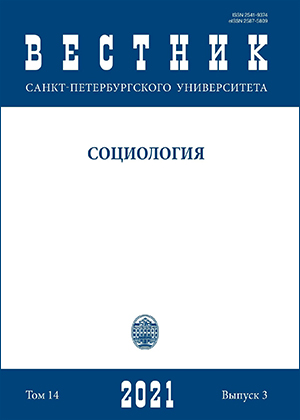Managers in the digital economy: New challenges and competencies
DOI:
https://doi.org/10.21638/spbu12.2021.302Abstract
The article presents a critical review of studies concerned with competencies and behavioral models of managers in the context of remote work and digitalization of business processes. The digitalization process, being one of the leading trends in the labor market, has irreversibly changed organizations, work environments and processes by creating new challenges for leaders. More flexible organization structures are beginning actively used in different industries and organizations, for example, remote forms of work. Moreover, digital services and technologies help companies adapt more quickly and effectively to new conditions. Remote work, which is becoming a new global norm of work, opens significant opportunities for companies, but also requires another type of management — electronic. The new type of leadership implies significant changes in the relationship between a manager and employees, which makes it necessary for leaders to change their behavioral models. E-leadership, whose role is to facilitate working conditions and maintain employee motivation to achieve desired goals, offers an effective combination of electronic and traditional communication methods that can be expressed through two groups of leadership competencies: socio-communicative and socio-technological. E-leadership practices will not only be able to ensure the development and realization of an employee’s work potential, but also optimize personal relationships in the
workplace. The results of this article reveal the potential of using the new concept of leadership in studies of new working conditions.
Keywords:
digitalization of labor, remote work, management practices, leadership, e-leadership, social-communication skills, social-technological skills
Downloads
References
References
Downloads
Published
How to Cite
Issue
Section
License
Articles of "Vestnik of Saint Petersburg University. Sociology" are open access distributed under the terms of the License Agreement with Saint Petersburg State University, which permits to the authors unrestricted distribution and self-archiving free of charge.




